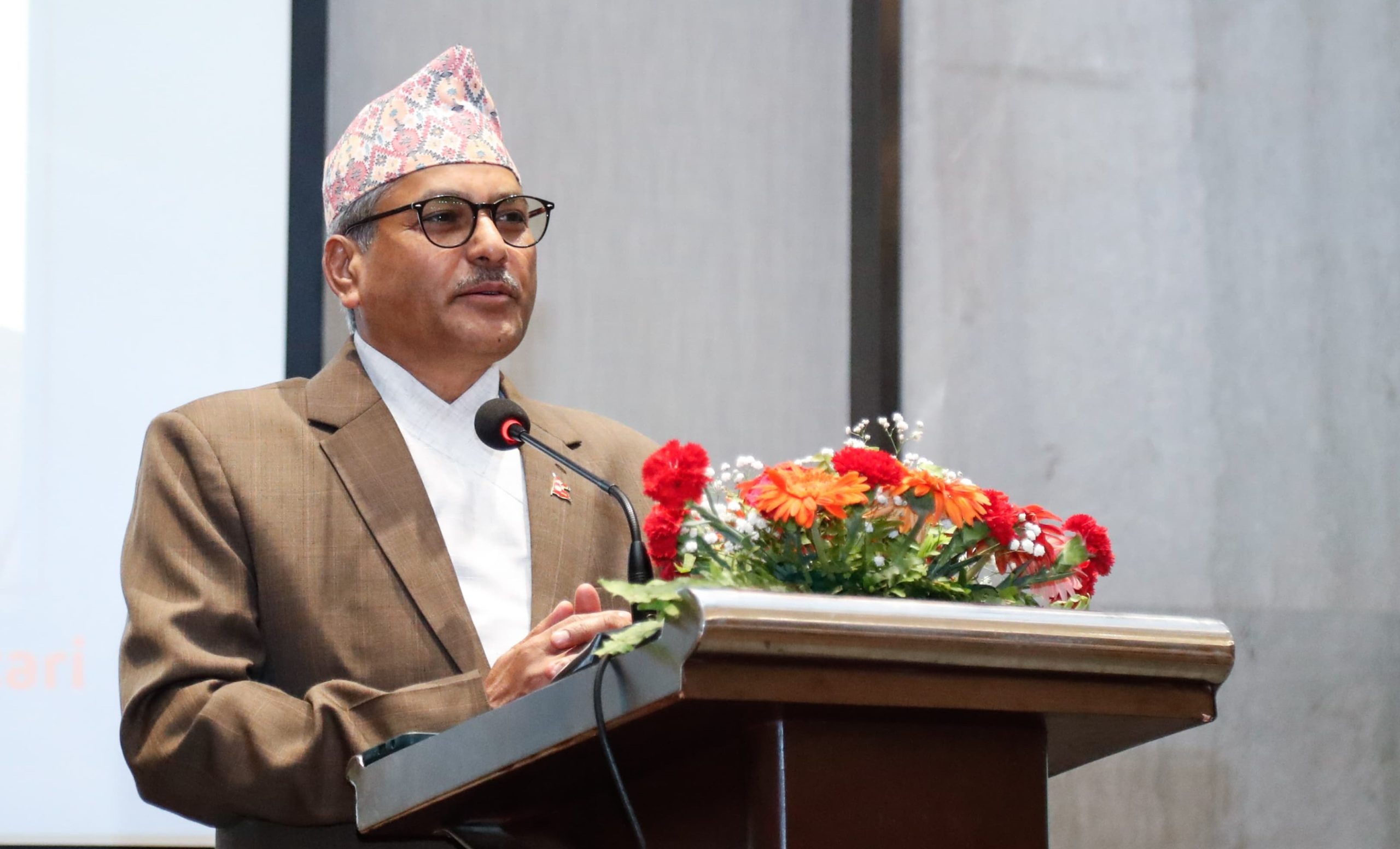Mahaprasad Adhikari bids farewell as NRB governor, highlights autonomy as key achievement

KATHMANDU: Friday marked the final day in office for Mahaprasad Adhikari, Governor of Nepal Rastra Bank (NRB), as his five-year tenure officially concluded. Appointed on March 24, 2020 (Chaitra 24, 2076), his term was set to end on March 23, 2025 (Chaitra 23, 2081), but as that date fell on a Saturday, Friday became his last working day. Addressing journalists at the NRB’s central office in Baluwatar on his farewell, Adhikari reflected on a challenging yet impactful tenure.
Taking the helm during the COVID-19 pandemic, Adhikari faced numerous hurdles, including frequent clashes with the government. Despite these challenges, he hailed safeguarding the central bank’s autonomy as his most significant achievement. “Even amidst government interference, we managed to preserve NRB’s independence,” he said, a victorious expression evident on his face. His tenure saw a notable episode in March 2022 when the then-government suspended him, forming a probe committee. Adhikari challenged this in the Supreme Court, which reinstated him, a move he credits to the judiciary, civil society, and media vigilance.
In his farewell speech, Adhikari expressed gratitude to the Supreme Court, judges, lawyers, and the media for upholding NRB’s autonomy during what he described as a direct assault on the central bank’s leadership in his second year. “The globally recognized principle of central bank autonomy was upheld thanks to their support,” he stated. However, he cautioned that maintaining this independence will remain a challenge for his successor amid subtle policy interventions.
Adhikari also highlighted economic improvements during his tenure, including a bolstered foreign exchange reserve, which he attributed to prudent monetary policies and increased remittances. When he assumed office, Nepal’s economy was reeling from the pandemic and later the Russia-Ukraine war’s ripple effects. “Using limited resources during the pandemic to stabilize the financial system was a monumental task,” he said, emphasizing data-driven policies that kept Nepal’s economy resilient compared to peer nations.
Under his watch, foreign exchange reserves soared from a low of 6.9 months of import cover in FY 2078/79—sparking fears of a Sri Lanka-like crisis—to a record USD 17.85 billion by January 2025, sufficient for 14.4 months of imports. Adhikari pointed to this as a key success, alongside easing inflationary pressures and strengthening the external sector. Critics, however, argue that this growth owes more to remittances—fueled by Nepalis working abroad—than to his policies alone.
Among his contributions, Adhikari introduced the Working Capital Loan Guidelines, aimed at fortifying the financial sector long-term, though it drew flak from businesses for its abrupt implementation. “It caused short-term difficulties, but it will strengthen the economy in the long run,” he defended. He also cited advancements in anti-money laundering measures, cybersecurity, and payment system oversight as part of his legacy.
As Adhikari steps down, Nepal’s economic indicators show progress, yet challenges like policy interference and economic stability persist. His tenure, marked by resilience and controversy, leaves a mixed legacy as the nation awaits the appointment of the next NRB governor.












Facebook Comment